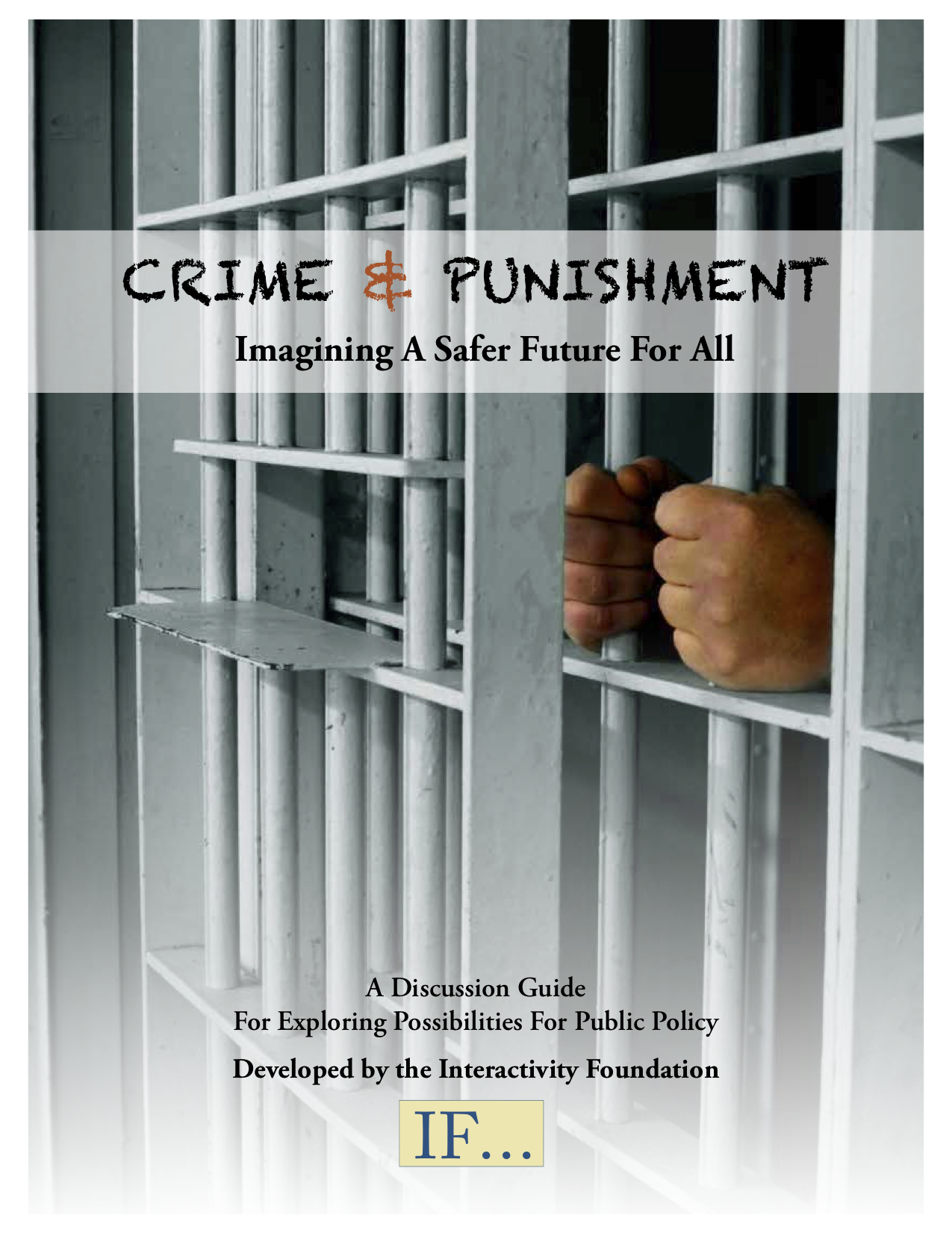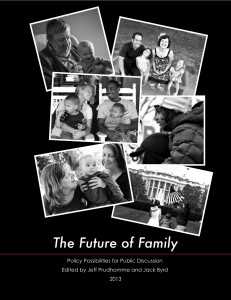We’re happy to share this post, which was submitted via our Submit-to-Blog Form by one of our sustaining NCDD members, Dr. Phil Neisser, on behalf of Jacob Hess, a supporting NCDD member. Both of these gentlemen are co-authors of the book You’re Not as Crazy as I Thought (But You’re Still Wrong): Conversations between a Devoted Conservative and a Die-Hard Liberal.
Do you have field news you want to share with the rest of us? Just click here to submit your news post for the NCDD Blog!
Dear Friends,
You might be interested in a brief essay just published online by Jacob Hess, our fellow NCDD-er and my conservative co-author. In it, he does a good job of laying out some differences between how liberals and conservatives view problems. You can read the article below, or find the original by clicking here.
American Politics: Beyond Angels and Demons
“Barack Obama is destroying this nation” is how it usually starts. Then it goes on to health care, gay marriage, the economic stimulus, foreign policy or all of the above. The details of the political rant vary widely, but one conclusion is remarkably common:
“And you know what? I think he’s very aware of what he’s doing. I think he reallyknows how he is hurting the country.”
As a conservative who lives in a conservative stronghold of the USA, I regularly hear this kind of dinner table commentary. At the point where Obama’s malevolence is mentioned, I can’t resist stepping in by saying “I have to disagree with you there. I know lots of people who think like Obama – and all of them really do believe their plan is going to benefit America.”
“What you might not be appreciating,” I usually add, “is that Obama is coming from a very different story about the world than we conservatives do. And if you take that narrative as your starting point, it leads you to a very different set of decisions in terms of what is best for our country.”
And that’s where I lose them…”Hmmm…ok, thanks for sharing.” (Translation: “I still think Obama is a demon”).
My conservative neighbors are not demons either. Instead, they’re illustrating something that’s fairly common to most of us, namely this: when faced with intense disagreement, it’s easy to see opponents as malicious, malevolent, or otherwise ill-willed. As my liberal friend Phil Neisser once said:
“Many people think that the solutions to public problems (and the nature of the problems themselves) should be obvious to anyone who’s reasonable, informed, unbiased, and well-intentioned. From this perspective, if all parties to a conversation are reasonable then the conversations should be easy, because most problems have ‘common sense,’ obvious solutions.”
Once we adopt this view, those who disagree with us are no longer simply reflecting a different understanding of the world. Instead, any difficulties in the conversation confirm our feeling that the other side is unreasonable, ill-informed, biased, and badly-intentioned. And why would you ever talk to someone like that?
That’s why I believe it’s crucial that we pay careful, regular attention to the narratives that surround us. If we’re not listening to the ways that distinct and powerful stories shape our experiences, then we’re more likely to demonize, vilify and condemn our political opponents as ignorant or unworthy. That isn’t the best way to start a relationship, let alone move towards collaboration and shared work together.
Let’s take an example. There’s lots of talk across the world these days about helping those who are poor. Despite popular stereotypes, liberal, progressive and conservative communities in the USA all hold to narratives that value helping those in need. But exactly what that means in practice, of course, varies in fundamental ways.
Conservative narratives famously pay attention to the importance of individuals doing what they can for themselves as part of the helping process. In our view, passivity, dependence and over-helping are real issues – with the potential to become even bigger problems than those we are trying to address in the first place.
Although my liberal and progressive friends aren’t necessarily unconcerned about these issues, they seem much less central in their own story of helping. Instead, their narrative focuses on the urgency of providing help – ‘let’s get people health care and get businesses back on their feet’ – with less concern about the potential side effects of over-helping and dependence.
The point is this: different policies make sense depending on which narrative of helping is taken up. Hence, President Obama presses for mandated health care and economic stimulus while conservatives scratch their heads in confusion.
Political competition is essential in any democracy, but when deeper narratives are ignored, gut-level exasperation can quickly turns into unbending opposition: ‘Why would anyone oppose universal health care, unless they are demons too?’ Rather than trying to understand how a different narrative shapes someone else’s experiences, we write them off: ‘what kind of human being could ever believe in that?’
What would it mean if we really grasped the differences in our narratives and stories? Could it influence our ability and willingness to work together?
I think the answer is “yes.” Take the large divide that exists around environmental issues. In liberal and progressive narratives, the impact of human beings on the earth’s environment is often taken to be the biggest threat to human life. Discussion centers on ways to protect the environment in the face of economic growth.
For conservatives, however, caring for the environment is rarely the first focus in our narrative, even though we do care about it. Instead, it is “social climate change” that we perceive as the biggest threat to human life – the shifts away from norms and values that we see as central to a healthy society. Without denying the potential of serious problems that arise from growing carbon emissions, avoiding future calamities depends for us on the size of our collective “moral footprint.”
These differences are real and have to be acknowledged as the basis for any meaningful conversation, but the good news is this: once they are understood there is much more room-to-maneuver for compromise and collaboration. Most of the conservatives I know really don’t want to trash the environment. Likewise, I’ve never met any liberal or progressive individual who advocates for more adultery in society.
Rather than grappling with an unbridgeable chasm between different human beings – the angels and the demons – we might enjoy exploring the contrasts in emphasis, priorities and moral vision that exist between equally-thoughtful and well-meaning people.
Once we grasp this position, many possibilities emerge. Over the next few weeks on Transformation we’ll be exploring a range of often-surprising ways in which diverse citizens are talking and working together in the rough-and-tumble of American politics. We’ll see how people with radically different views are trying to find some common ground through “Living Room Conversations” and other efforts to develop a different quality of political debate. We’ll examine how America’s military budget is being curtailed by unusual alliances between liberals, conservatives and progressives. We’ll hear about encounters with the Tea Party and Fox News by gay and lesbian activists, and how “slow democracy” is being modeled on the “slow food” movement which originated in Italy and France.
The bottom line running through these experiments is simple: smart people with good hearts disagree about the nature of almost everything in the world. Once we embrace this reality, new relationships become possible. In particular, we can practice the art of deep and vociferous disagreement while respecting each others’ worldviews and backgrounds.
What could that mean for potential political compromises, collaborations and the future of social change?
Make no mistake – it could mean everything.
Original article link: www.opendemocracy.net/transformation/jacob-z-hess/american-politics-beyond-angels-and-demons
 The five policy possibilities are:
The five policy possibilities are:
 Edited by IF Fellow Jeff Prudhomme and the Interactivity Foundation’s president Jack Byrd, Jr., this guidebook asks readers to consider how public policy might respond to these concerns. It invites readers to explore and discuss what values or moral considerations shape these policies? What are the rights and responsibilities in regard to the family that public policy should take into account? How should we approach the relationship between political power and the family? What are other moral, legal, or political concerns that our family policies might need to address?
Edited by IF Fellow Jeff Prudhomme and the Interactivity Foundation’s president Jack Byrd, Jr., this guidebook asks readers to consider how public policy might respond to these concerns. It invites readers to explore and discuss what values or moral considerations shape these policies? What are the rights and responsibilities in regard to the family that public policy should take into account? How should we approach the relationship between political power and the family? What are other moral, legal, or political concerns that our family policies might need to address?

